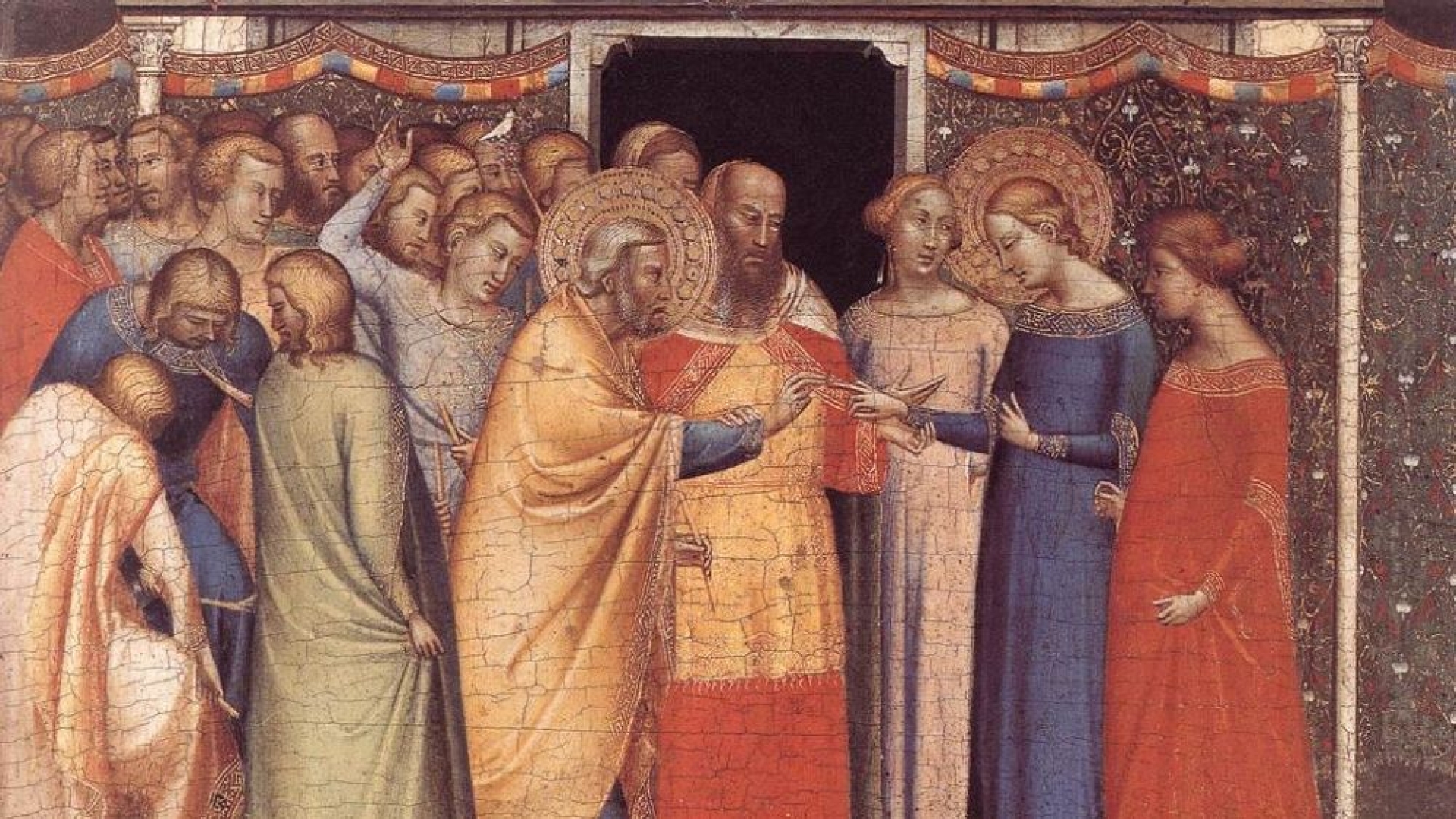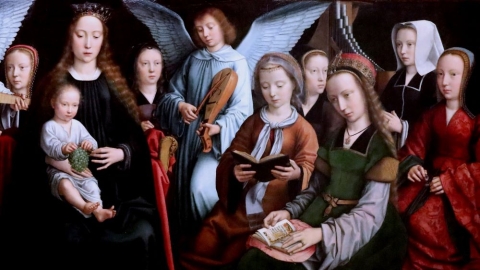Must the Woman Who Would Give Birth to Christ Be Married?

Marriage of the Virgin Mary and Saint Joseph
The preceding considerations have shown that the Mother of God was not only a virgin before, during, and after the birth of her Son Jesus Christ, but that she had made a vow of virginity under the inspiration of the Holy Ghost. In these conditions, it is thus natural to ask if she should take a husband.
In fact, the Archangel Gabriel was sent “to a virgin espoused to a man whose name was Joseph, of the house of David” (Lk. 1:27). This detail expressly noted in Holy Scripture, as well as the account in the Gospel, shows the will of God on this point. But the Fathers and theologians questioned what motivated the divine plan. St. Thomas summed it up with his usual clarity.
In consideration of the Incarnation of the Son of God
The Word assumed human nature in all that it entails, with the exception of what would go against His dignity. He thus assumed social life, and in the first place, family life: this is why He was born in a family.
It was equally important that the Messiah not be rejected as an illegitimate child: “Is not this Jesus, the son of Joseph, whose father and mother we know?” (Jn. 6:42).
Filiation is essential for the Jews. This can be seen in the genealogies of Scripture, and even in the Holy Gospel. But it must be drawn up, according to custom, through the paternal line.
Finally, God wanted the divine Child to have a protector and a supportive father. The role of this father consists, in the special plan of Redemption, to give to the Word Incarnate the possibility of leading a hidden life.
In consideration of the Mother of God
A young girl who failed in her duties was exposed to the penalty of stoning. The birth of Christ within the holy family made that threat disappear.
And, assuming this penalty was not implemented, it protected the Virgin Mary from the infamy of the situation being an unmarried mother. The dishonor, even apparent, would have reflected on the Son of God.
Finally, this marriage assured the Blessed Virgin of the help of Saint Joseph. And we know how precious that was.
In consideration of men
Jewish customs would not have allowed a woman not to be married, because of the rules of the transmission of inheritance and the duty to produce the people of Israel. Indeed, to avoid the passage of a portion of their inheritance to another tribe, women married within their own tribe.
The witness of St Joseph eloquently confirms the virginal conception of the Saviour. In fact, it was up to him to denounce the culpability of adultery. His hesitation shows the virtue of the Virgin Mary.
The testimony of Mary affirming her virginity thus has more authority. If the Virgin claims that she conceived without losing her virginity, she merits more trust married than unmarried.
It was also necessary for the Mother of God to be an example for young girls. If she had conceived virginally without being married, her reputation could have been – wrongly – tarnished. The virginal conception of a married woman preserves her reputation and gives it as an example for all women.
In this way, the Virgin becomes a wonderful image of the Catholic Church: she is a virgin, a wife, and a mother.
Finally, in Mary, virginity and marriage are honored in the same person: thus the respective dignity of these two states is placed in a striking relief.
Related links
Illustration : Bernardo Daddi, Domaine public, via Wikimedia Commons





